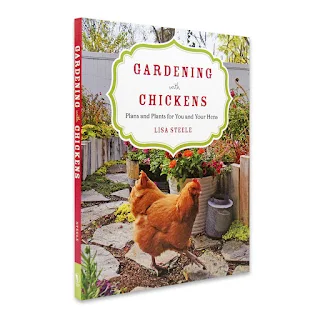7 Natural Non-Toxic Weed Control Methods for a Chicken-Friendly Yard and Garden
When you start raising chickens, you soon realize that they can - and will - eat just about anything they can reach.
Unfortunately though, they won't eat ALL the weeds in your yard or garden, although they do love to eat lots of common weeds - and weeds are super nutritious for them! But ultimately, there will come a time when you need to kill some weeds.
Naturally, you won't want to use any chemicals like RoundUp or other substances that could be harmful to your chickens and other pets as well as your family. (For me this also includes dish soap and salt, both of which could be harmful if your chickens ingest them in large enough quantities, so NO SALT and NO DISH SOAP please in areas the chickens hang out!).
Fortunately, there are numerous safer and more natural weed control methods available to keep your yard chicken-, pet- and kid-friendly, but also weed-free!
7 Natural Non-Toxic Weed Control Methods for a Chicken-Friendly Yard and Garden
These safe(r) weed-control methods often aren't as immediately effective as commercial or chemical applications like Roundup, but also don't come with the same health concerns, so you might have to reapply several times in order for them to work, but on the upside, they're inexpensive and easy to apply.
Applying on a sunny day is recommended, not only so the rain doesn't wash away your weed killer, but also sunlight tends to activate the ingredients better than when it's cloudy.
Here is my top seven list of safe and natural weed control methods.
Hand pulling
Pulling weeds by hand is labor-intensive and can be backbreaking, but it's probably the most effective and inexpensive way to keep weeds under control.
It also gives you an excuse to spend lots of time outside!
Mulching
Mulching around your garden plants and along the pathways in your garden is a great way to control weeds. When you clean out your coop in the fall, spread the straw or pine shavings in your garden.
By spring, it will have decomposed enough that you can work it into the soil and enough time will have gone by that you shouldn't have to worry about any pathogens remaining.
Dried leaves, pine needles, hay and even newspaper also make good mulch.
If you have a new spot you plan on using for your garden, putting down cardboard or layers of newspaper first, then covering them with some mulch in the fall will mean a weed-free, nicely 'fed' spot to plant come spring.
Cornmeal
Sprinkle some cornmeal in areas where you want to control weeds. The corn gluten inhibits seed germination. Just don't use it in your garden when you have veggie seeds planted, or they won't sprout either!
But using cornmeal before you have your crops planted, or in areas where you only have perennial or annual flowers planted, will keep weed seeds from germinating.
Boiling water
Pouring boiling water over weeds is probably the cheapest (c'mon it's free!) and easiest way to kill weeds.
Just heat water in a kettle and then pour it over the weeds you don't want poking through the stones in a walkway or cracks in the patio.
White vinegar
White vinegar is a wonderful weed killer. Pour some into a squirt bottle and squirt away. The caustic vinegar removes the protective coating on the leaves of plants so they die.
Regular household vinegar (5% acetic acid) works okay and your weeds will start to shrivel up - it will be more effective if you spray on a hot, sunny day - but if you buy commercial-grade vinegar (20-30% acetic acid), you'll find the weeds stand far less chance.
(Caution: the concentrated vinegar is extremely strong and can burn eyes, nose and throat as well as skin, so wear protective clothing while you're spraying it. Once it's dry, no worries.)
Note: Country Living UK recommends saving pickle juice and using that!
Lemon juice (citric acid)
Citric acid is also a very effective weed killer. Commercial orange oil weed killers are on the market, but plain lemon juice will also do the job. The acid burns plant leaves and the plant dies.
(Note: for a super effective weed killer, try adding lemon juice to the concentrated vinegar a 1/16 ratio lemon juice to vinegar and squirting the weeds)
Chickens
And last but not least, chickens can be very effective weed control. Letting them have free reign in the garden both before the planting season and after the last harvest help to rid your garden of weed seeds. Limited (supervised) time in the garden during the growing season also is beneficial for weed and insect control.
Remember also that all of these natural non-toxic weed control methods (including the chickens!) are non-discriminate, meaning they will kill everything they come in contact with - weeds, plants and grass - so apply carefully.
One Weed Control Method I Don't Recommend
I also want to caution you about using salt to kill weeds. Not only can salt in even fairly small amounts be harmful to your chickens if they eat it, salt has a terribly detrimental effect on the makeup of soil, so you don't want to use it as weed control in your garden unless you don't plan on growing anything there for awhile!
I hope you will try some of these safe, natural weed control methods before reaching for a commercial, chemical solution.
I personally have tried all these methods and have found the vinegar/lemon juice solution to be the most effective on yard weeds and mulching to work best in the garden, but all work to some degree, especially with repeated applications.
Is there another method that you've tried that either has or hasn't worked for you? I would love to hear about it!
Happy gardening!






























